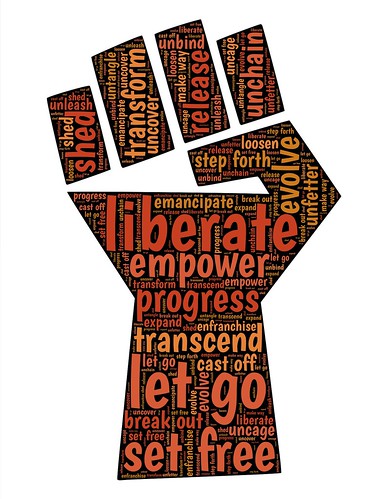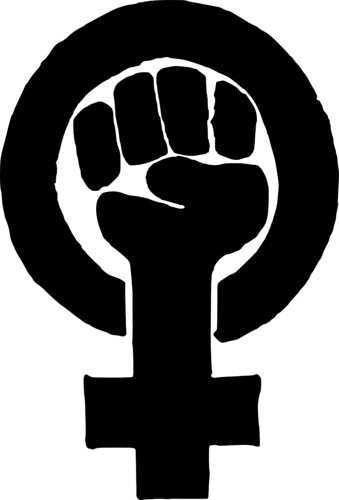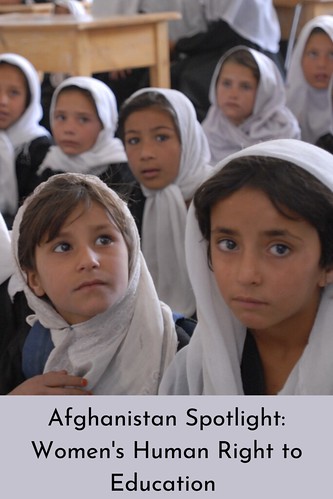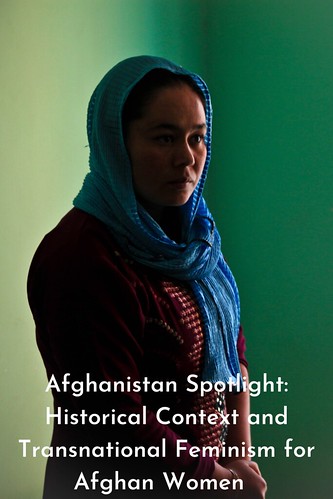Afghanistan Spotlight: The Latest Taliban Guidelines Suppressing Afghan Women
In most humanitarian crises, the women and children always seem to suffer the most harm.

This article will focus on the deteriorating humanitarian crisis in Afghanistan, as aid restrictions are dangerously affecting the citizens of Afghanistan, especially women and children. It will also look into how the halt in foreign aid is destroying Afghanistan’s economy, which is now facing collapse.

Taliban blocking female aid workers
The humanitarian crisis in Afghanistan is worsening, as the Taliban continue to violate Afghan women’s human rights, especially with the restriction on female aid workers. These conditions are especially dangerous and harmful to Afghan women, as these restrictions mean aid will reach fewer families, particularly female-headed households.
Heather Barr, associate women’s rights director at Human Rights Watch, stated:
“Permitting women aid workers to do their jobs unfettered is not a matter of agencies or donors placing conditions on humanitarian assistance, but an operational necessity for delivering that assistance.”
It has also been reported by The United Nations Office for the Coordination of Humanitarian Affairs that as of October 28th 2021, that only 3 of Afghanistan’s 34 provinces have provided written agreements unconditionally allowing aid workers to do their job.
Female aid workers play an important role in Afghanistan, especially concerning women and children in female-headed households. Particularly since the country has been ever more segregated by gender, the Taliban takeover’s actions against women, including blocking female aid workers, leaves women and children in need of assistance.

Further aid restrictions
Furthermore, the Taliban has imposed additional restrictions on the certain types of aid that female workers can do.
In 16 provinces, the Taliban have said that female aid workers who have been permitted to do certain jobs must be accompanied by a mahram (a male family member/chaperone).
In 11 provinces, women aid workers are permitted to work only in health and education programs. Human Rights Watch reports that this is blocking them from other areas of humanitarian assistance, such as distributing food and other necessities, water and sanitation, and livelihoods assistance, in which women’s participation is also essential.
While the Taliban continue to impose restrictions on the women in Afghanistan, many women continue to fight against this suppression through protesting and asking the international community not to turn their backs on Afghanistan.

Afghanistan’s economy facing collapse
Millions face famine in Afghanistan as the economy faces a collapse, as international donors withhold aid. While this halt in foreign aid funds is a stand by the international community against the Taliban government, it is majorly affecting the citizens of Afghanistan, especially Afghan women.
Human Rights Watch stated that,
“Humanitarian aid is critical, but given the crisis, governments, the UN, and international financial institutions need to urgently adjust existing restrictions and sanctions affecting the country’s economy and banking sector.”

Latest set of Taliban guidelines
On Sunday 21st November 2021, the Taliban government released a new set of ‘religious guidelines’ to the citizens of Afghanistan, said the spokesman for the Ministry of the Promotion of Virtue and Prevention of Vice Hakif Mohajir.
Yet these ‘guidelines’ seem to represent rules rather than proposals.
Through this new set of guidelines, the Taliban have once again placed further restrictions on women’s rights in Afghanistan by ordering certain television channels to stop airing soap operas that feature female artists. They further ordered Afghan female journalists to wear headscarves on screen, but have yet to specify which type of covering to use.
These new guidelines have resulted in Afghan journalists expressing that this is another form of control over women in Afghanistan. However it remains unclear as to whether appearing on air without a headscarf will result in legal scrutiny.
Zahra Nabi, a journalist who co-founded a women’s television channel in Afghanistan, stated that since the Taliban’s takeover in September 2021, it has created a very “tough working environment for women.” While this television channel is no longer on air, Nabi continues to find other ways to broadcast her reports on platforms like social media or via broadcasters outside the country.
Like many other women, in Afghanistan Nabi refuses to let these restrictions stop her from working, and stated that they will not allow the Taliban to erase them from public life.

The actions from the Taliban government do not reflect their initial verbal promise concerning women’s rights, and the restrictions to Afghan female journalists poses a deeper threat, as their absence from the media once again reflects a silencing of all Afghan women.
Guidelines or rules?
The ministry has also ordered channels not to air films or programmes in which the Prophet Mohammed or other revered figures are shown.
The guideline further calls for the banning of films or programmes that were/are against Islamic and Afghan values.
The banning of films and programmes by the Taliban government acts as a direct rejection of the western progress in Afghanistan over the past 20 years. During the Taliban’s previous rule, there was no Afghan media, as it was deemed immoral.

These actions from the Taliban government reveal that they have no intention of fulfilling their promise that their regime will be different from their previous rule in the 1990s.
The Taliban government has already dictated what women can wear to university, and responded with violence and attacks towards Afghan journalists and protestors, while also excluding women from senior governmental roles and stopping women’s sports. This new update in their regime only suggests a dangerous and inevitable future for the citizens of Afghanistan, especially the women.

Patricia Gossman, an associate Asia director at Human Rights Watch, states that, “The Taliban’s new media regulations and threats against journalists reflect broader efforts to silence all criticism of Taliban rule.”
Further action
While it is important that the international community refuses to accept the legitimacy of the Taliban government, halting foreign aid is not the answer.
Officials with the UN and several foreign governments have warned that economic collapse will exacerbate acute malnutrition—and could lead to outright famine.

The Taliban is currently demanding that foreign aid be released, but the restrictions of aid workers in Afghanistan are resulting in the international community refusing to cooperate unless aid workers are permitted to return to work.
However, it is the lives of ordinary Afghans that are at risk. As a senior Taliban official stated, “Don’t make the mistake of thinking that I will suffer from sanctions, I will always get my salary, my meals, and money to keep my office warm.”
The international community needs to acknowledge that while political issues are extremely important, they cannot ignore the basic human rights that are being ignored in Afghanistan.

Afghanistan Spotlight articles in this series:
Women’s Human Right to Education in Afghanistan

Afghanistan Spotlight: Historical Context and Transnational Feminism for Afghan Women

Afghanistan Spotlight: The Importance of International Cooperation for Afghan Women and Girls

Olivia Fraser is the Women and Children’s Human Rights Editor at Wandering Educators. She is currently studying a Master’s in Human Rights and Diplomacy at the University of Stirling. She is motivated by a desire to emphasise the importance of women’s human rights.



















